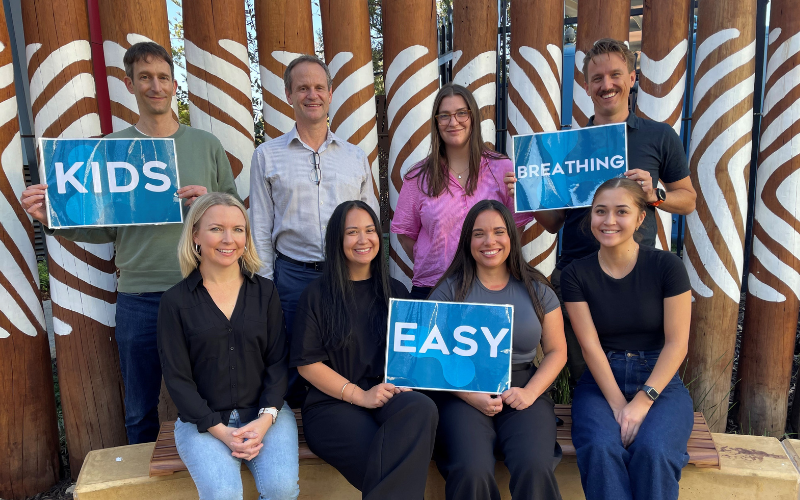
The Kids Easy Breathing Study kickstarts this month, with the aim of finding out how the airway surface is different between infants who develop chronic lung disease after contracting bronchiolitis compared with those who don’t.
It is hoped the findings will help to find ways to prevent bronchiectasis in those who are vulnerable.
Bronchiolitis is a serious lung infection caused by a virus, and is the most common reason globally for children to be hospitalised.
In Australia, Indigenous children are around six times more likely than other children to be admitted in hospital for bronchiolitis.
A study from Eastern Australia found that one in five Indigenous children hospitalised for bronchiolitis were later found to have bronchiectasis - a serious lung condition that reflects permanent lung damage.
The study lead Professor André Schultz, who is the Head of the Wal-yan Respiratory Research Centre and Head of the BREATH team at The Kids Research Institute Australia, said if we could find out why some Indigenous children, and not others, develop bronchiectasis we can try to help prevent the disease.
"The Kids Easy Breathing Study aims to generate new, feasible, evidence-based solutions that will positively alter the life trajectory of Indigenous children’s lung health. We will do this by using a comprehensive approach to determine why Indigenous children develop bronchiectasis at such high rates after contracting bronchiolitis,” Professor Schultz said.
“Our research will focus on the surface of the lower airways - the micro-environment where bronchiectasis commences and progresses - whilst at the same time considering factors related to the individual, their environment, and maternal factors expected to influence the airway surface.
If we can identify modifiable risk factors for infants, we can facilitate interventions to prevent bronchiectasis - a lifelong chronic disease with markedly shortened life expectancy.
Importantly, the study was conceptualised with the Aboriginal researchers Sarah Munns and Professor Alex Brown, and is being guided by an Aboriginal Advisory Committee.
Professor Schultz has been working with Aboriginal families to improve children’s lung health for many years.
Through working alongside Aboriginal parents who are passionate about the health of their children our aim was to co-design a culturally safe research project, and to yarn about current data and how we can prevent and reduce the number of bronchiectasis cases amongst Indigenous children.
The study, which aims to recruit 200 participants, is possible thanks to a WA Child Research Fund grant and additional support from Mineral Resources. It is being undertaken in collaboration with The University of Western Australia, Child and Adolescent Health Service, WA Department of Health, Menzies School of Health Research, The University of Sydney, and Murdoch University, Western Australia.
Pictured (left to right, back row to front row) are study investigators Dr Timo Lassmann, Professor André Schultz, Eleanor Ferguson, Dr Luke Garratt, Dr Angela Fuery, Jamie Everingham, Sian Jerrett and Kathryn Bowen.
Other The Kids Research Institute Australia study investigators include Professor Chris Blyth, Professor Alex Brown, Dr Sam Buckberry, Dr Thomas Iosifidis, Associate Professor Anthony Kicic, Sarah Munns, Associate Professor Kathryn Ramsay, Professor Peter Richmond, and Dr Bep Uink.
The BREATH (Building Respiratory Equity for Aboriginal and Torres Strait Islander Health) team is dedicated to finding ways to improve the health trajectories of children through multiple approaches, with a strong focus on lung health in Indigenous children. Learn more about the team’s research here.
The Wal-yan Respiratory Research Centre is a powerhouse partnership between The Kids Research Institute Australia, Perth Children’s Hospital Foundation and Perth Children’s Hospital.
